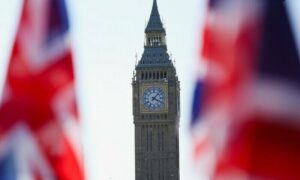The International Monetary Fund (IMF) has said that it “stands ready” to hold a mission for the second review of the Stand-By Arrangement with Pakistan after a new cabinet is formed.
“The focus, therefore, is currently on completion of the current Stand-By programme, which ends in April 2024. We look forward to working with the new government on policies to ensure macroeconomic stability,” IMF Director of Communications Julie Kozack told journalists at a news briefing on Thursday.
Kozack noted that the IMF Executive Board had approved the first review of Pakistan’s Stand-by Arrangement (SBA) on January 11, with disbursements totaling approximately $1.9 million.
The SBA aims to stabilise the economy, particularly focusing on safeguarding vulnerable segments of the population.
Highlighting the caretaker government’s efforts, Kozack praised their commitment to fiscal targets, the protection of social safety nets, and a tight monetary policy to control inflation.
She also acknowledged timely adjustments in tariffs to enhance the energy sector’s viability.
Looking ahead, Kozack emphasised the IMF’s readiness to conduct a mission for the second review of the Stand-By arrangement after the formation of a new cabinet. The current Stand-By programme concludes in April 2024, and the IMF anticipates working closely with the new government to ensure macroeconomic stability.
Responding to a question regarding political instability, Kozack refrained from commenting on politics. Instead, she reiterated the IMF’s commitment to collaborating with the new government and expressed optimism about fostering stability for the benefit of the people of Pakistan.
‘Looking forward’ to working with new govt
Last month, the IMF had stated that it is looking forward to engaging with the new government on policies to ensure “macroeconomic stability and prosperity for all of Pakistan’s citizens”.
The development came a day after PTI Senator Ali Zafar told reporters that a letter would be sent from incarcerated party founder Imran Khan to the international lender urging it to call for an independent audit of the Feb 8 general elections before it continues talks with Islamabad.
Zafar said the IMF, the European Union and other organisations had a charter that stated that good governance was needed for working in the country or giving a loan.
“The most important condition for good governance is democracy,” he said, adding that the people’s mandate was stolen “in the darkness of the night” during the Feb 8 polls.
He said that if elections were not free and fair, any organisation would avoid giving a “loan” to such a country. “Because that loan will further burden the people,” he said.







